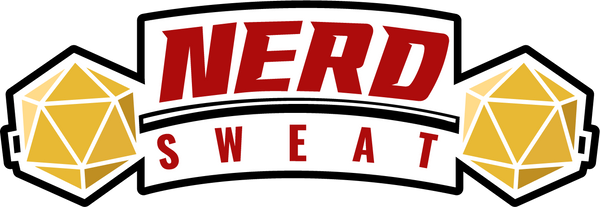
Critical Thinking at the Table: How RPGs Help Students Analyze and Strategize
What if learning critical thinking felt less like a pop quiz and more like an epic adventure? What if, instead of dull worksheets, students developed problem-solving skills by outwitting goblins, deciphering ancient runes, and negotiating peace between warring factions? This is the magic of tabletop role-playing games (TTRPGs), where every choice matters, and every challenge is an opportunity to sharpen the mind.
RPGs: The Ultimate Critical Thinking Playground
At their core, games like Dungeons & Dragons aren’t just about rolling dice—they’re about analyzing situations, weighing risks, and formulating strategies. Players must think ahead, adapt to unexpected outcomes, and collaborate with their party to succeed. These skills don’t just help at the table—they translate directly into real-world problem-solving.
Example: A group of students is playing a campaign where they must retrieve a stolen artifact from a cunning rogue who never stays in one place for long. Instead of brute force, they analyze his movements, use deception to get close, and predict his next move. In doing so, they’re practicing logical reasoning, pattern recognition, and adaptive thinking—essential skills for everything from STEM fields to business strategy.
Breaking Down the Learning Process
1. Tactical Decision-Making: Thinking Before You Leap
In TTRPGs, every action has consequences. Players must assess their environment, consider their character’s strengths and weaknesses, and choose the best approach.
🔹 Example: A wizard debating between casting a fireball (which could damage teammates) or using a subtle illusion (which could deceive enemies) is engaging in risk assessment and strategic planning—key components of critical thinking.
2. Problem-Solving Through Puzzles and Challenges
Many RPG adventures include riddles, ciphers, or logic-based puzzles that require players to think creatively and work as a team.
🔹 Example: In one campaign, a door is sealed with a riddle written in an ancient script. The party’s bard deciphers the language while the rogue finds hidden clues in the room. Here, deductive reasoning and collaborative thinking turn a simple game mechanic into an engaging learning experience.
3. Cause and Effect: Understanding the Impact of Choices
Unlike multiple-choice tests, RPGs allow students to experiment with different approaches and see the outcomes firsthand.
🔹 Example: A party trying to negotiate with a powerful merchant could succeed by appealing to his greed, offering him protection, or intimidating him. Each choice leads to a different outcome, encouraging situational analysis and decision-making skills.
From the Table to the Real World
The problem-solving techniques honed in RPGs mirror real-life scenarios:
✔️ Business & Leadership: Making informed decisions with limited information.
✔️ STEM Fields: Applying logic and experimentation to solve problems.
✔️ Social Interactions: Understanding perspectives, empathy, and negotiation.
Teachers and educators are beginning to integrate RPGs into their classrooms to help students develop these skills. According to a 2021 study in the International Journal of Game-Based Learning, students who engaged in role-playing scenarios showed increased problem-solving abilities and improved teamwork compared to traditional learning methods.
Resources for Bringing RPGs into Education
Want to introduce RPG-based learning into your classroom, homeschool, or youth program? Here are some excellent starting points:
📖 Books & Guides:
- D&D Starter Set (Perfect for beginners)
- No Thank You, Evil! (A kid-friendly RPG designed for ages 5+)
- Critical Core (An RPG designed for neurodiverse learners)
🎲 Online Resources:
- D&D Beyond – A digital toolset for building characters and campaigns.
- RPG Research – Studies on the educational benefits of RPGs.
- Tabletop Alliance – A nonprofit promoting RPGs in education.
The Final Roll: Encouraging Thoughtful Play
In a world that increasingly values problem-solving, adaptability, and teamwork, RPGs provide an engaging, low-pressure way for students to develop these skills while having fun. Whether in a classroom, homeschool setting, or after-school club, the power of story-driven learning is undeniable.
So next time someone says "It’s just a game," remind them: It’s also a classroom, a think tank, and a strategy lab—all wrapped into one thrilling adventure.
Now, are you ready to roll for initiative… on learning? 🎲💡
